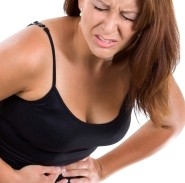 |
Symptoms of EndometriosisContents • Introduction |
Return To Overview |
Introduction
Many women with endometriosis do not experience any symptoms, which is why they may remain (unharmfully) undiagnosed. In fact the first time some women become aware of the condition is when they experience difficulties in becoming pregnant. Infertility in women is one of the main symptoms of endometriosis. Occasionally however it is discovered through a routine examination for another condition completely. Women who do develop symptoms often mistake the early signs of endometriosis for those of premenstrual syndrome (PMS). Early signs can be painful or irregular periods and pelvic pain. As the months progress the woman may begin to suspect a problem if symptoms worsen and her general health declines.
The majority of women begin having symptoms before the age of 20 and the condition is more frequently found in young women. Endometriosis may also flare up during perimenopause before finally disappearing after menopause. There is very little connection between the severity of the disease and the pain experienced by the woman. In fact, the earlier stages of endometriosis are often more painful than later stages. This possibly may be due to an increase in prostaglandin hormones which cause inflammation, spasms and digestive disturbance. Pain can vary from month to month. While some women's symptoms worsen over time, for others, pain disappears of its own accord.
Most Common Symptoms of Endometriosis 1. Painful periods (dysmenorrhea): Pain usually occurs a few days before a period is due, or 5 to 6 days before the heaviest part of flow is experienced. Pain usually lasts up to 3 days and it can be mild to severe, occurring in the vagina or pelvic area or the stomach and lower back. See also, can endometriosis cause missed periods? 1. Depression, see effects of depression. Remember any of these symptoms can occur for other reasons and do not necessarily constitute an endometriosis symptom checklist. This is particularly true if just one symptom occurs in isolation. Always consult your doctor for an accurate endometriosis diagnosis and take a look at other possible causes of reproductive disorders. Endometriosis symptoms are not unique and can be similar to other conditions such as ovarian cysts, pelvic inflammatory disease (PID) and infections from a contraceptive IUD device (Intrauterine Device). Other Health Problems Associated With Endometriosis If endometriosis develops there is a risk that a woman's autoimmune system becomes depleted and unable to defend itself. This is only one of the reasons why endometriosis treatment is so important. Increasingly research indicates that women with long-term endometriosis are more susceptible to other serious health conditions including: 1. Autoimmune diseases such as lupus, hypothyroidism and multiple sclerosis. Useful Fact: Endometriosis Alternative Treatments Statistically a woman is more likely to develop endometriosis if she: 1. Suffers irregular periods, particularly heavy periods (menorrhagia) which last more than 7 days.
|
| Related Articles on Endometriosis Symptoms
For more conditions related to endometrium issues, see the following: • How long does it take to get pregnant? Back To Homepage: Womens Health Advice |
|
WOMENS HEALTH ADVICE: ABOUT ENDOMETRIOSIS |